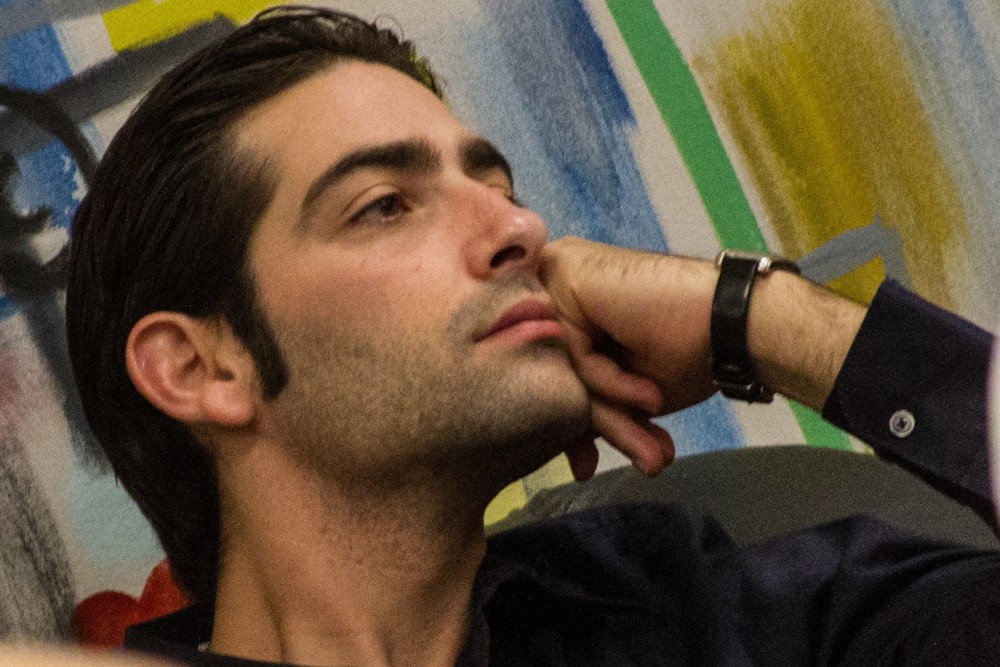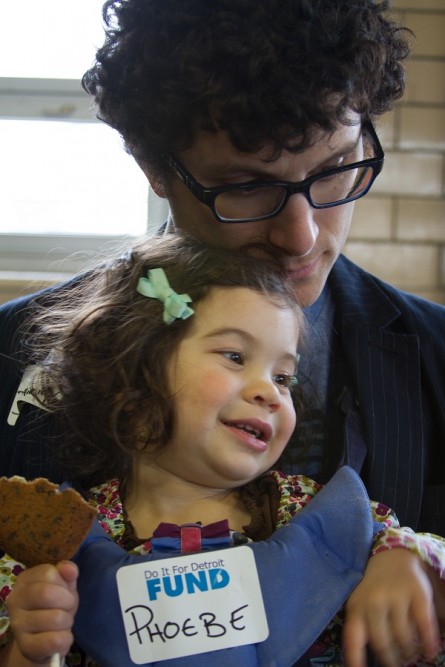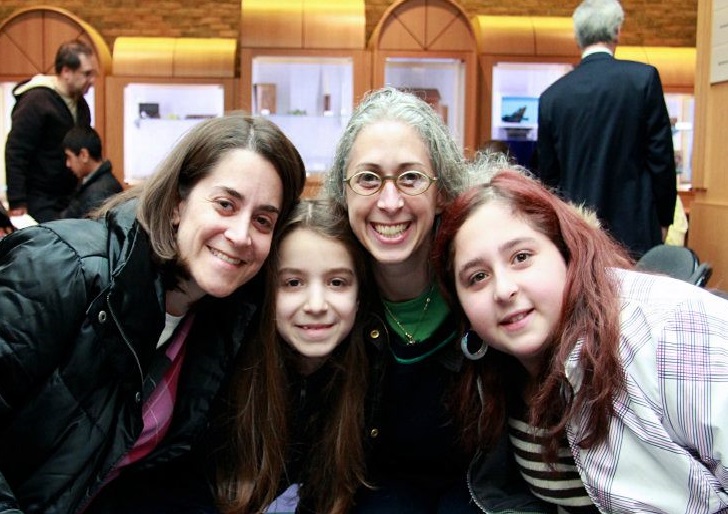Is Jewish identity in America changing?
And, if so, what are the implications for the Jewish community?
According to a major survey released in October 2013 by the Pew Research Center, there’s good news: American Jews overwhelmingly say they are proud to be Jewish and have a strong sense of belonging to the Jewish people. But the survey also suggests that Jewish identity is changing in America, where one-in-five Jews (22%) now describe themselves as having no religion.

The trend is not exclusive to Judaism. Churches also struggle to keep young members engaged, and studies show that younger Americans are far less likely to be religiously affiliated than their parents and grandparents. Leaving that particular finding aside, the study still raises an ancient question, “Who is a Jew?”
So who’s a Jew?
There’s never been a hard and simple answer. But the approach taken in the Pew survey was to cast the net widely, seeking to interview all adults who answer an initial set of questions (from the “screener”) by saying (a) that their religion is Jewish, or (b) that aside from religion, they consider themselves to be Jewish or partially Jewish, or (c) that they were raised Jewish or had at least one Jewish parent, even if they do not consider themselves Jewish today.
To help unpack the findings of the study in a community forum, the Jewish Community Relations Council and Federation’s Alliance for Jewish Education called in Dr. Laurence Kotler-Berkowitz, a member of the Pew Advisory Board on the study and Senior Director of Berman Jewish DataBank for The Jewish Federations of North America. “The Pew Research Institute is a fact tank,” Kotler-Berkowitz explained. “It is an independent, non-partisan, non-advocacy, non-policy group funded by the Pew Charitable Trust. They’ve done a number of studies on American ethic and religious groups and decided the time was right for them to do a study on American Jews.”
Key findings from the Pew Study

- There are 6.7 million Jews in the United States, (1.8% of total population) a larger number than estimated by the 1990 and 2000 Jewish population studies.
- 22% of American Jews say that they have “no religion” and these “nones” are a growing phenomena. Breaking this down by generation, while 93% of the Greatest Generation identify as Jewish on the basis of religion, only 68% of Millennials identify as Jewish by religion.
- Jews of no religion are not only less religious, but significantly less connected to the Jewish community and much less likely to be raising their children as Jews.
- Jews have an overwhelming pride in being Jewish (97% of Jews by religion and 83% of Jews of no religion).
- The annual 58% intermarriage rate has remained constant since 2000.
- 48% of Millennials are children of intermarried parents.
- Though intermarriage rates remain high, most children (61%) of one Jewish parent remain Jewish.
- 62% of Jews feel that being Jewish is a matter of culture and ancestry.
- 45% of Jewish adults have visited Israel and 90% of all Jews say that caring about Israel is essential or important to their Jewishness.
- While currently 10% of Jewish adults are Orthodox, 27% of Jewish children are Orthodox and 35% of children between ages 0 – 4 are Orthodox
Key responses
The forum provided the opportunity for community leaders to reflect on the study’s key findings and then ask, “So what?”
What implications does the study have for the Metro Detroit’s Jewish community?
What are the implications for organizational policy, planning and practice?
For Rabbi Michael Moskowitz, congregational rabbi at Temple Shir Shalom, the study is filled with positive tidings for the Jewish community.
- 94% of respondents are proud to be Jewish
- 75% of respondents say that they have a strong sense of belonging to the Jewish people
According to Rabbi Moskowitz, it’s not that we have a problem in Jewish identity. It’s a problem of engagement – and a problem in our institutions. We continue to hold onto the old crisis narrative that the synagogue is the only place to assert one’s Jewish identity. We need to move away from the crisis narrative. We need to move away from identifying with buildings and focus on building relationships.We need to focus on all of the joys of being Jewish, and not on the oys.
With an identified intermarriage rate of 58% since 2000, Rabbi Moskowitz identifies intermarriage as an “opportunity, not a catastrophe.” From his perspective, creating an environment of hospitality and inclusion is a much more productive response to Jewish continuity than denial and exclusion.
For Miryam Rosenzweig, Director of Federation’s NEXTGen Detroit, the study underlines Federation’s innovative, nationally recognized approach for working with Millennials.
“Our current organizations are not prepared for today’s young adults. For the Millennials, the word ‘should’ does not work. We can no longer tell people that they should become members, that they should give to Federation, that they should support Israel. We need to understand that it’s not about our existing organizations. It’s about relevance, and it’s about creating emotional connections to community and being Jewish.

Bottom line: What we need to understand is that what got us here won’t get us there (to the future). Just trying to do more of the same with more resources won’t be successful for engaging the millennial population. We need to meet them where they are and become experts in 21st century generational trends.”
Perry Teicher, a third-year JD/MBA student at University of Michigan Law School and the Ross School of Business, points out that:
- Millennial Jews want to craft their own Jewish identity. A number of organizations and foundations support this through social entrepreneurial networks.
- Millennial Jews are less geographically restrained than in the past – they feel comfortable in communities around the world.
- These factors create a challenge for place-based Jewish communities and institutions to form lasting connections even while people may relocate – or be in different locations for different life cycle events and holidays.
- In addition, the ability to create your own community challenges the broader concept of community building and long-term sustainability. Communities should find ways to support these self-generated communities – focusing not just on the organizations, but on those involved and the values of the initiatives – to help nurture ideas, connect to the past and form lasting community connections that can bring the idea of global Jewish peoplehood home.
Tilly Shames, the Executive Director of the University of Michigan Hillel, sees tremendous Jewish pride on campus. Today’s ‘Starbucks’ generation wants the opportunity to make choices and the autonomy to create their own Jewish communities.
They are looking for opportunities to create their own way of being Jewish, not having to fit into earlier generation’s preconceived boxes of how to be Jewish. To reach this generation, the organized Jewish community needs to practice ‘Audacious Hospitality.’ We need to support initiatives that individuals can create themselves.”
At the end of the forum, community leaders were left to ponder the implications of the Pew Study and to continue to consider:
- If the Millennial generation is membership adverse, what does this mean for many Jewish organizations which are membership driven?
- How do we reach a generation that feels spirituality is very important, but has diminishing interest in organized religion?
- Over 20% of Jews define themselves as Jews of no religion. What are the implications of changing Jewish identity?
- Do we need to focus our resources more on outreach to the unaffiliated or concentrate more on those who are already choosing to identify themselves as Jewish?




